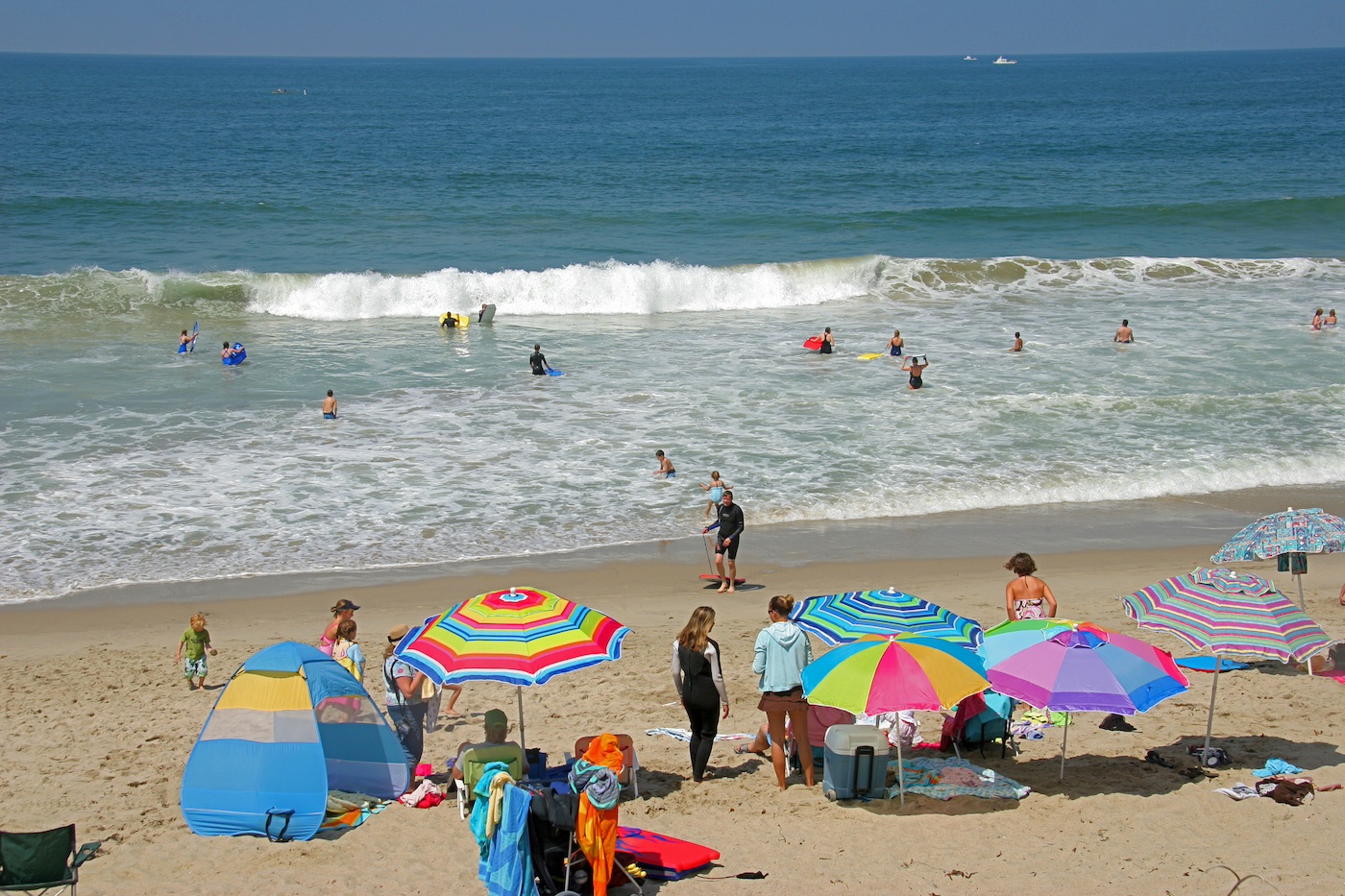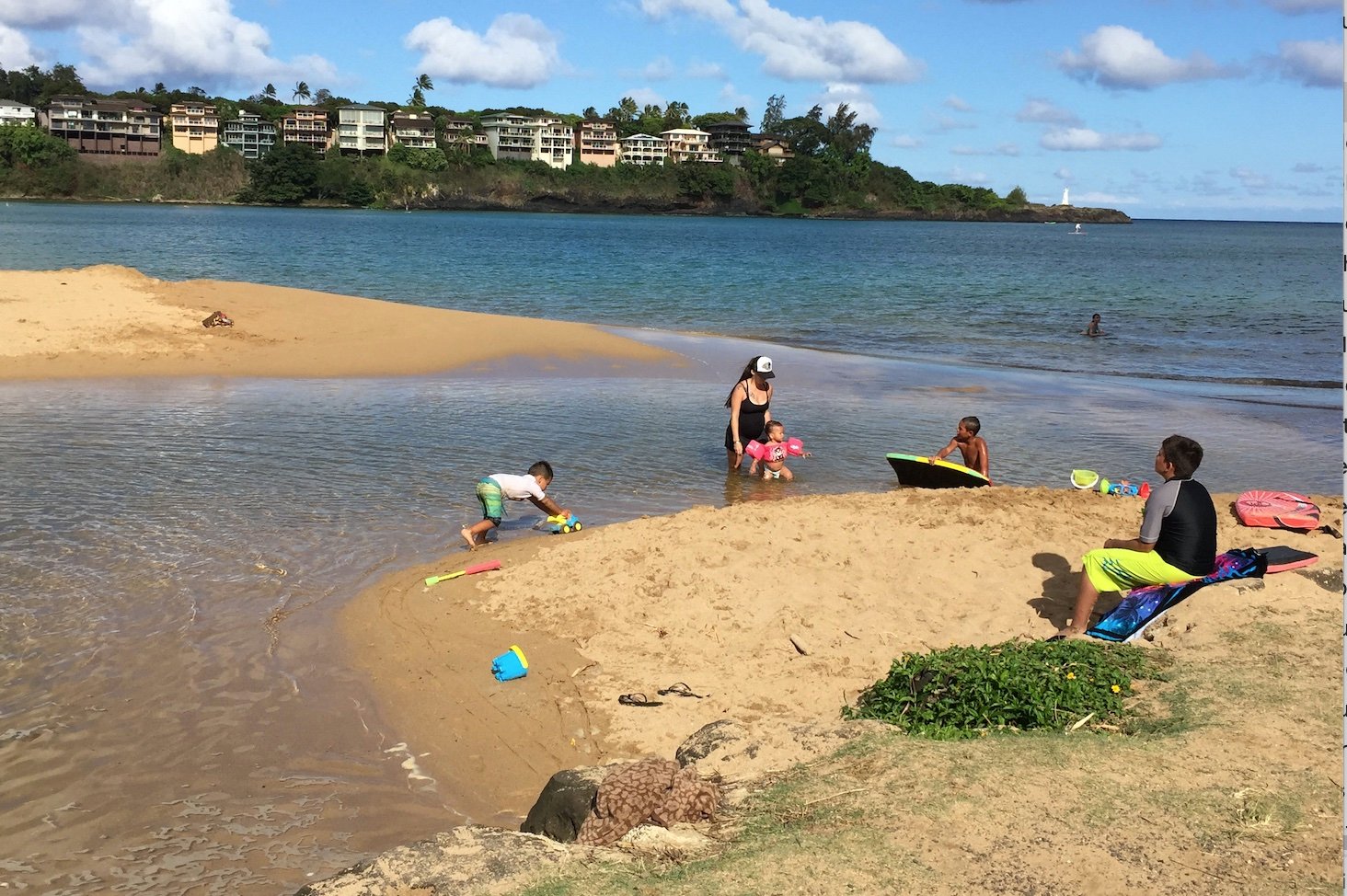
Water quality data and experience from the Surfrider Foundation's Blue Water Task Force help inform updates to the BEACH Act
A group of bipartisan members of Congress submitted the BEACH Act of 2024 (HR 7203) into the House of Representatives to improve EPA oversight and state implementation of beach water quality monitoring and public notification programs. This reauthorization bill was introduced by Representatives Rouzer (NC), Pallone (NJ), Sykes (OH) and Joyce (OH).
In addition to extending federal funding authorization for the Environmental Protection Agency’s (EPA’s) BEACH Act grants program that was first established by the BEACH Act of 2000, the 2024 bill also proposes these improvements:
- Expanding eligible uses of BEACH Act grants to include identification of sources of pollution,
- Clarifying that “nearby upstream shallow waters” that are “adjacent to or present on” beaches or similar points of access are eligible,
- Directing EPA to support and encourage innovations in testing technologies.
These legislative changes are all very welcome by the Surfrider Foundation, especially our network of chapter volunteers that are testing their local beaches and coastal waterways through the Blue Water Task Force (BWTF) program. These chapter programs largely are set up to extend the coverage and fill in the gaps of BEACH Act funded state and local government run beach programs to provide their community with more information on where it is safe to surf, swim and play in the water. While the government programs typically focus on popular life-guarded beaches and only run seasonally in most states, BWTF volunteers are testing the water year-round in a wide range of sampling sites where people like to recreate including beaches popular with surfers, bays and coastal harbors and ponds where people enjoy paddling, swimming, fishing and boating, as well as in the many streams that flow across the beach where families with small children tend to congregate.
These streams tend to carry pollution from the watershed down to the beach and chapter water quality test results frequently show much higher bacteria levels in sampling sites located in streams than in the open ocean water nearby. With few exceptions, however, state and local health departments do not test these waters regularly, despite water quality data presented by BWTF volunteers showing the potential health risk, as guidance provided by EPA to states on how to spend their federal grants has led many states to conclude that testing these streams was not allowed. Even in situations where the Surfrider chapter and local authorities all acknowledge that a stream or beach is showing problems with consistently high bacteria levels, federal BEACH grant dollars can not currently be spent on investigating the sources of the pollution so they can be addressed.

Families with small children seek out the calm, warm waters of the Nāwiliwili Stream on the island of Kauaʻi in Hawaiʻi, yet every single sample that the Kauaʻi BWTF has collected since 2016 has shown high bacteria levels that exceed the state health standard. The State Department of Health does not test this site, and the chapter is advocating for signs to be posted near the stream to warn people of the potential health risk.
We have shared the concerns that we have with state-run beach water quality monitoring programs with the legislative offices that drafted this new bill and we’re stoked to see these shortcomings addressed. The BEACH Act of 2024 directs EPA to update their grant guidance to clarify that these freshwater streams where children play in the water on the beach are indeed coastal recreational waters covered by the BEACH Act. It also directs EPA to better support and encourage the adoption of new rapid testing methods, as progress in this area has been frustratingly slow and has not kept up with technological advancements in other fields. Because of this, most states still depend on old testing technologies that require a 24-hour incubation period, so people find out tomorrow what water quality conditions are at the beach today.
Additionally, this new bill allows state programs to not only let people know whether the water at the beach is safe to swim or polluted, but it also allows grant monies to be spent on identifying sources of pollution so they can be fixed and clean water restored. In theory this is fantastic, but in reality this provision will only be useful in most states if there is an accompanying increase in funding for the BEACH Act grants program.
While the program was initially authorized at $30 million annually, actual appropriated funding levels have languished at just under $10m for the first 20 years of the program. Surfrider has long advocated to keep the BEACH Act funded in the face of federal budget cuts and finally in recent years, we’ve managed to build the bipartisan support in Congress needed to see modest increases in funding ($10.119 in FY2022 and $10.619 in FY2023).
Heading into our 2024 Coastal Recreation Hill Day, Surfrider Foundation staff and volunteers are preparing to ask their federal representatives in Congress to support both this new bill to reauthorize the BEACH Act as well as to increase funding for the program in FY2025 so that we can do even more to fill the gaps in beach monitoring programs that leave public health unprotected. Clean water at the beach is critical to both everyone’s safe use and recreation as well as the multi-billion dollar coastal tourism economies that depend on public confidence in clean beaches.
Join us in our efforts to safeguard public health and clean water at your beach by sending an email to your member of Congress and asking them to co-sponsor the BEACH Act of 2024. Just click here.
